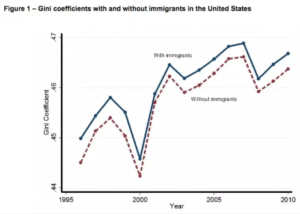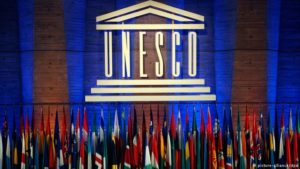Categoría: historia
Peru – On the brink of a first FIFA World Cup since 1982
Estados Unidos anuncia su salida de la Unesco
Estados Unidos anunció su retiro de la Organización de Naciones Unidas para la Educación, la Ciencia y la Cultura (Unesco, por sus siglas en inglés).
La medida, que fue comunicada este jueves a la directora general de la organización, Irinia Bukova, se hará efectiva a partir del 31 de diciembre.
Según el Departamento de Estado estadounidense, la intención de EE.UU. es establecerse como “observador permanente” de Unesco.
Mayor información en: bbc
Read more at: reuters
Los detenidos en la operación contra la organización del referéndum
La Guardia Civil ha entrado en sedes de la Generalitat, organismos públicos y empresas en las que se prepara la consulta del 1 de octubre
La Guardia Civil ha detenido este miércoles a al menos 14 personas por su supuesta participación en la organización del referéndum ilegal del 1 de octubre, la mayoría altos cargos del Ejecutivo catalán. Entre los detenidos en nueve sedes oficiales de la Generalitat se encuentra el número dos de Oriol Junqueras en la Conselleria d’Economia, Josep Maria Jové. Este es el cometido actual de los principales arrestados.
JOSEP MARIA JOVÉ, secretario general de Economía y Hacienda
Además de número dos de Oriol Junqueras en el Departamento de Vicepresidencia, Economía y Hacienda, Jové es también un peso pesado dentro de Esquerra Republicana de Catalunya (ERC), donde preside el Consell Nacional. Tras ejercer como asesor en el sector público y privado, su carrera política despegó ya durante el Gobierno tripartito. Entre 2005 y 2010, desempeñó el cargo de Políticas Sectoriales en los departamentos de Presidencia y Vicepresidencia.
En la última crisis de Gobierno, en la que saltaron varios consejeros por su negativa a llegar hasta el final del proceso soberanista y se incorporaron otros inequívocamente independentistas, Jové se incorporó en un núcleo duro de coordinación política integrada por solo cuatro miembros: el presidente de la Generalitat, Carles Puigdemont; el vicepresidente, Oriol Junqueras, y el secretario del Gobierno, Víctor Cullell. Como número dos de Junqueras, tiene también bajo su responsabilidad el área de procesos electorales, una vez esta fue traspasada del Departamento de Gobernación a Vicepresidencia.
LLUÍS SALVADÓ, secretario de Hacienda
Junqueras confió a otro miembro de peso de ERC el desarrollo de una de las áreas clave para el proceso independentista: la Agencia Tributaria de Cataluña (ATC). Secretario general adjunto de ERC desde 2011, Salvadó se deshizo del anterior cerebro de la llamada Hacienda catalana, Joan Iglesias, y decidió dar un empujón al organismo con el plan de que asuma la gestión de todos los tributos que se generan en Cataluña.
Su tarea no era fácil: Salvadó debía hacerse cargo de una agencia en estado precario que había desarrollado menos competencias que otros organismos autonómicos e irla dotando de contenido con la plena asunción de la gestión de los impuestos propios y cedidos y la recaudación de multas. Para ello implantó un programa informático capaz de procesar masivamente impuestos para superar la obsoleta plataforma E-spriu y amplió la plantilla de la ATC, de 350 a más de 700 personas.
También tuvo que lidiar con el escándalo que protagonizó el exsenador Santi Vidal, que afirmó que la ATC tenía todos los datos de la ciudadanía de forma ilegal, lo que motivó una auditoría de la Agencia Catalana de Protección de Datos. Su último proyecto, la gestión de las retenciones y cotizaciones sociales de las administraciones catalanas (incluidos los Ayuntamientos) provocó un choque con el Gobierno central, que entendía que esa intermediación era ilegal.
XAVIER PUIG FARRÉ, responsable de la Oficina de Asuntos Exteriores
Puig entró en la Administración catalana en 2012 a través del Centro de Telecomunicaciones y Tecnologías de la Información (CTTI) de la Generalitat, donde estuvo en las áreas de Innovación y posteriormente ocupó cargos de dirección. En mayo de 2016 pasó al Departamento de Asuntos Exteriores, Relaciones Institucionales y Transparencia, donde se hizo cargo del departamento informático.
Entre sus funciones están las de garantizar que las actuaciones en materia tecnológica estén de acuerdo con los “objetivos estratégicos y operativos” de la consejería de dirige Raül Romeva. Puig ha compaginado esas responsabilidades con la actividad docente en escuelas de negocios.
JOSUÉ SALLENT I RIBES, Centro de Telecomunicaciones y Tecnologías de la Información (CTTI)
Su inicio en la Administración catalana se remonta a septiembre de 2010, cuando dirigió el Centro de Seguridad de la Información de Cataluña (CESICAT). Allí estuvo apenas siete meses, cuando pasó a la empresa privada. Desde septiembre de 2016 es director de Estrategia e Innovación del Centro de Telecomunicaciones y Tecnologías de la Información (CTTI) de la Generalitat.
DAVID FRANCO MARTOS, Centro de Telecomunicaciones y Tecnologías de la Información (CTTI)
Empleado del Centro de Telecomunicaciones y Tecnologías de la Información (CTTI) desde 2005, está adscrito como gestor de proyectos del Departamento de Trabajo, Asuntos Sociales y Familia. Uno de sus encargos, según fuentes del Gobierno catalán, era la preparación de la Agencia Catalana de la Protección Social, que debía ser el embrión de una eventual Seguridad Social Catalana.
JOAN MANEL GÓMEZ, Centro de Seguridad de la Información de Cataluña
Vinculado al Centro de Seguridad de la Información de Cataluña (CESICAT) desde 2010, donde estuvo en las áreas de riesgo y seguridad, Gómez tiene encomendadas labores de desarrollo del voto electrónico y el encargado de coordinar el plan de acción de la Generalitat para implementar el voto electrónico de los catalanes residentes en el extranjero.
DAVID PALANQUES SERRANO, Departamento de Trabajo y Asuntos Sociales
Profesor de la Universidad de Barcelona, está adscrito actualmente al Departamento de Trabajo, Asuntos Sociales y Familias.
JOAN IGNASI SÁNCHEZ, departamento de Gobernación
Es asesor del gabinete del Departamento de Gobernación, dirigido por la consejera Meritxell Borràs (PDeCAT) que convocó un consurso para licitar la compra de urnas. Sánchez fue también concejal del grupo municipal de Convergència i Unio del Ayuntamiento de Sabadell.
FRANCESC SUTRIAS GRAU, director de Patrimonio de la Secretaría de Hacienda
En el Ejecutivo de Carles Puigdemont, Sutrias es director general de Patrimonio, dentro del Departamento de Vicepresidencia, Economía y Hacienda que lidera Oriol Junqueras. Anteriormente, había sido concejal de ERC en Rubí. Abogado de formación, se ha dedicado sobre todo al ámbito de la vivienda y el urbanismo.
NATALIA GARRIGA IBÁÑEZ, directora de Servicios de la Secretaría General de Vicepresidencia
Licenciada en Derecho, fue durante el tripartito jefa del gabinete técnico de la Secretaría de Coordinación Interdepartamental, responsable técnica en la Dirección General de Coordinación Interdepartamental. En 2016 fue gerente en el Instituto Catalán de las Empresas Culturales, hasta que pasó al cargo actual.
PAU FURRIOL FORNELLS, abogado y miembro de ERC
Abogado y militante de ERC desde 1962. Ha sido presidente de la sectorial de Justicia, de la Comisión de Garantías y ha formado parte de la sectorial de Politica Económica y Financiera del partido.
JOSEP MASOLIVER, Fundación PuntCat
Es responsable técnico y de proyectos tecnológicos de la Fundación PuntCat y especialista en seguridad informática.
MERCEDES MARTÍNEZ SANTOS, empresa Fox Box Publi Alternativa
Apoderada de la empresa Fox Box Publi Alternativa SL, que presuntamente estaría vinculada con material electoral del referéndum ilegal del 1 de octubre.
ROSA MARÍA RODRÍGUEZ CURTO, empresa T-Systems
Actualmente ejerce como directora General de Servicios de la empresa T-Systems
En: elpais
Ver: Tres los detenidos en libertad tras negarse a declarar ante la Guardia Civil
Cronología del 20-S, el día en que se ha acelerado la crisis catalana
Mercosur suspende membresía de Venezuela
Los cancilleres de los países fundadores del Mercosur aplicaron la cláusula democrática de la organización y suspendieron la membresía de Venezuela alegando que el Gobierno de ese país rompió el hilo constitucional.
Este sábado (5.8.2017), el canciller brasileño, Aloysio Nunes, informó desde Sao Paulo, que los Estados fundadores del Mercado Común del Sur (Mercsour) –Argentina, Brasil, Paraguay y Uruguay– habían optado por cancelar indefinidamente la membresía de Venezuela, que se había unido a ese bloque en 2012. Nunes habló de una “suspensión de naturaleza política, por consenso; una sanción grave de naturaleza política contra Venezuela”. Los ministros de Exteriores del Mercosur aplicaron la cláusula democrática del organismo –el Protocolo de Ushuaia– alegando que el “hombre fuerte” de Caracas, Nicolás Maduro, ha roto el hilo constitucional de Venezuela.
Aunque la cláusula en cuestión permite la aplicación de sanciones económicas a los países en los que se arremeta contra el Estado de derecho, Nunes subrayó que “no está prevista una sanción comercial”, sino una medida de “aislamiento político”. Analistas de la crisis venezolana dudan que esta medida u otras de carácter comercial ejerzan presión efectiva sobre Maduro para obligarlo a retornar a la vereda democrática. La razón: el comercio entre Mercosur y Venezuela ya ha caído un 66,7 por ciento desde su ingreso en 2012, al pasar de un volumen total de 9.742 millones de dólares a 3.240 millones a cierre de 2016, según un informe de la consultora privada Abeceb publicado este mismo 5 de agosto.
De acuerdo a los datos del reporte de Abeceb, en el último lustro las exportaciones del Mercosur hacia Venezuela descendieron un 63,8 por ciento, de 7.761 millones de dólares a 2.807 millones; mientras que las importaciones desde el país caribeño sufrieron un desplome aún mayor, del 78,14 %, de 1.981 a 433. Las cifras ofrecidas por Abeceb muestran que el retroceso de la actividad comercial se produjo principalmente en los últimos dos años, debido a la crisis económica vivida en el país, que según las previsiones de la consultora provocará este año una caída del PIB de más del 10 por ciento.
Dentro de Mercosur, los principales exportadores hacia Venezuela en 2016 fueron Argentina y Brasil, con el 52 por ciento y el 45 por ciento de las ventas totales, respectivamente, mientras que las de Paraguay y Uruguay apenas representaron el 2 por ciento y el 1 por ciento, respectivamente. En cuanto a las importaciones, Brasil fue con diferencia el mayor comprador de bienes venezolanos, con el 96 por ciento del total; en tanto que Argentina supuso el 3 por ciento; Paraguay, el 1 por ciento y Uruguay, un porcentaje cercano al 0 por ciento. Los alimentos totalizaron más de la mitad de las exportaciones de Mercosur hacia Venezuela, y de 2012 a 2016 descendieron un 53,7 por ciento.
Por otro lado, los productos más demandados a Venezuela por los socios del bloque comercial, con casi dos terceras partes, fueron los relacionados con los combustibles y lubricantes –especialmente el petróleo–, que en los últimos cinco años experimentaron un retroceso del 83,7 por ciento.
En: DW
Contra el ecumenismo del odio
El Vaticano critica a los fundamentalistas xenófobos e islamófobos en un artículo de la revista de los jesuitas visado por el propio Papa y por el secretario de Estado

El papa Francisco, entre Ivanka (izquierda) y Melania Trump (derecha), en una audiencia en el Vaticano el 24 de mayo pasado. ALESSANDRA TARANTINO (REUTERS)
¿Quién se acuerda de Charles Maurras? Murió hace más de 60 años mientras cumplía cadena perpetua por complicidad con el enemigo alemán durante la Segunda Guerra Mundial. Fue extraordinaria su influencia intelectual sobre las derechas más extremas europeas, incluidas las españolas, a través de su partido antisemita, ultra y monárquico, Action Française, sobre todo entre las dos guerras mundiales. Igual de extraordinaria fue su tormentosa relación con la Santa Sede, que terminó con su excomunión y las de su seguidores y con la inclusión de un puñado de sus escritos y de la propia revista que dirigía en el Índice de Libros Prohibidos.
El tiempo de las excomuniones y del Índice de los Libros Prohibidos queda lejos, olvidado ya. Roma ya no hace cosas así, al menos desde el Concilio Vaticano II. Pero si las hiciera, no hay duda de que ahora tendríamos algo parecido a un caso Maurras a propósito de las turbulentas ideas y propuestas políticas del presidente Trump y más concretamente de su consejero estratégico Steve Bannon,un príncipe de las tinieblas que inspira las políticas más extremistas de la actual Casa Blanca, como el muro con México y el muslim ban o prohibición de entrada en EE UU a ciudadanos de seis países musulmanes.
Steve Bannon es católico, mientras que Donald Trump nació en una familia presbiteriana. La religiosidad personal de ambos es más que dudosa, como le sucedía a Maurras, hasta el punto de que fue el agnosticismo del escritor francés el que le condujo a la condena eclesial. Bannon se ha divorciado dos veces a pesar de la indisolubilidad del matrimonio católico, y de Trump se desconoce si practica o si tiene siquiera alguna idea religiosa. Pero en ambos cuenta la religión como visión política del mundo, y ahí es donde el Vaticano tiene algo que decir y lo ha dicho, uniendo además en una misma crítica al catolicismo integrista y al fundamentalismo evangelista que tan buen servicio les ha rendido al Partido Republicano para ganar en las elecciones presidenciales.
Aunque el mensaje es bien claro, en cuanto a quien lo emite y a lo que dice, la vía escogida por el Vaticano es sutil e indirecta. Ha sido la revista de los jesuitas Civiltà Cattolica la que lo ha transmitido, a través de un artículo, titulado ‘Fundamentalismo evangélico e integrismo católico en Estados Unidos, un ecumenismo sorprendente’, firmado por su director, el italiano Antonio Spadaro, y por el protestante argentino Marcelo Figueroa. Un católico y un protestante denuncian precisamente la colusión de católicos y protestantes extremistas estadounidenses en un mismo pensamiento al que califican de “ecumenismo del odio”. Según el diario italiano La Repubblica, el papa Francisco en persona, el secretario de Estado Pietro Parolin y el secretario para las Relaciones con Estados Unidos, Paul Richard Gallagher, han corregido y visado el artículo.
El papa Francisco rechaza la narrativa del miedo y de la inseguridad, sobre la que Trump y su derecha alternativa construyen muros ideológicos
La primera característica de esta desviación teológica es el maniqueísmo, un “lenguaje que divide la realidad entre el Bien absoluto y el Mal absoluto”, cuestión en la que los autores citan al propio presidente Trump y que sitúa a los inmigrantes y a los musulmanes entre las amenazas al sistema de vida de Estados Unidos.Una segunda característica que denuncian Spadaro y Figueroa es el carácter de Teología de la Prosperidad que comparten los dos extremismos católico y evangelista. Su evangelio para ricos, difundido por organizaciones y pastores multimillonarios, predica una idea autojustificativa de que “Dios desea que sus seguidores tengan salud física, sean prósperos y personalmente felices”. La tercera característica es una defensa muy peculiar de la libertad religiosa, en la que extremistas católicos y protestantes se unen en cuestiones como la oposición al aborto y al matrimonio entre personas del mismo sexo o la educación religiosa en la escuela, y propugnan un sometimiento de las instituciones del Estado a las ideas religiosas e incluso a la Biblia muy similar al que inspira al fundamentalismo islámico.
Esta visión del mundo proporciona una justificación teológica a la guerra y alienta la esperanza religiosa con la expectativa de un enfrentamiento apocalíptico y definitivo entre el Bien y el Mal. Las afinidades con la idea islamista radical de la yihad son bien claras. El artículo denuncia la web de extrema derecha Church Militant, que atribuye la victoria de Trump a las oraciones de los estadounidenses, propugna la guerra de religiones y profesa el llamado dominionismo, que es una lectura literalista del Genésis en la que el hombre es el centro de un universo a su entero servicio. Los dominionistas consideran anticristianos a los ecologistas y observan los desastres naturales y el cambio climático como irremediables signos escatológicos de un final de los tiempos apocalíptico, que no hay que obstaculizar, sino todo lo contrario.
No es posible comprender esta fuerte arremetida del Vaticano contra la extrema derecha estadounidense sin recordar la intervención de Steve Bannon en una conferencia celebrada en el Vaticano en 2014, en la que denunció la secularización excesiva de Occidente y anunció “la proximidad de un conflicto brutal y sangriento, (…) una guerra global contra el fascismo islámico”, en la que “esta nueva barbarie que ahora empieza erradicará todo lo que nos ha sido legado en los últimos dos mil o dos mil quinientos años”. También hay que situarlo en el marco de tensiones entre la Casa Blanca y el Vaticano a propósito de Oriente Próximo, especialmente tras el primer viaje de Trump en el que pretendió conectar con las tres religiones, islam, judaísmo y catolicismo, pero terminó convirtiéndose en un reforzamiento de la alianza con Arabia Saudí y un estímulo al enfrentamiento con Teherán, con consecuencias inmediatas en el bloqueo a Qatar.
El pontífice no solo discrepa de sus propuestas sobre ecología, inmigración o impuestos, sino que rechaza su estrategia en favor de Riad
Curiosamente, Spadaro y Figueroa defienden las raíces cristianas de Europa, pero con una argumentación inversa a la que se escuchaba en tiempos de Ratzinger, de la que ha desaparecido el supremacismo cristiano y blanco. “El triunfalismo, la arrogancia y el etnicismo vengativo son exactamente lo contrario del cristianismo”, aseguran. El artículo termina recordando que el papa Francisco combate la narrativa del miedo y la manipulación de la inseguridad y de la ansiedad de la gente, evita la reducción del Islam al terrorismo islamista y rechaza la idea de una guerra santa contra el islam o la construcción de muros físicos e ideológicos. Con la denuncia del ecumenismo del odio, el Vaticano sitúa a Steve Bannon y Donald Trump en un infierno ideológico análogo al que abrió las puertas a Maurras en 1927, ahora hace justo 90 años, en el que se encuentran condenados los políticos que utilizan la religión para dividir en vez de unir a los seres humanos.
En: elpais
NAACP Issues Warning to People of Color and Women Traveling to Missouri
The NAACP has responded to Missouri‘s recent legislation on discrimination by issuing a travel warning for the state. The advisory calls for travelers to utilize “extreme caution” in the state due to the likelihood of “discrimination and harassment,” CBS News reportedTuesday. Rod Chapel Jr., president of the state’s NAACP chapter, has described Republican Governor Eric Greitens’ recent legislation as “the Jim Crow bill,” a reference to the segregation tactics of the South.
The state’s legislation will make lawsuits alleging discrimination much more difficult to win, as victims will now have to present proof that discrimination was the main reason for a defendant’s actions. Previously, suits required proof that bias was a contributing factor. The bill also bars employees from suing any individual for discrimination, meaning only the company itself can be named in a suit.
“The advisory means each individual should pay special attention while in the state of Missouri and certainly if contemplating spending time in Missouri,” the NAACP said in a statement. The NAACP added that the advisory was put into place to make Missourians and visitors aware of “looming danger” in the state, which has a “long history of race, gender, and color-based crimes.” The travel advisory will be sent to the national NAACP board for ratification in October after being voted into adoption last week.
According to a report from the Kansas City Star, the advisory is the first of its kind from the civil rights group. “People need to be ready, whether it’s bringing bail money with them, or letting relatives know they are traveling through the state,” Chapel said. In 2015 alone, 100 hate crimes were reported in Missouri.
The NAACP highlighted a number of recent and troubling incidents in their statement, including the death of Tory Sanders in May. Sanders, a Tennessee resident, ran out of fuel in Charleston, Missouri after taking a drive to “clear his head.” The 28-year-old father of eight called his mother and asked if police could help him, the Riverfront Times reported in May.
Ultimately, Sanders’ interaction with cops included what they characterized as a “mental break.” Sanders’ aunt, Natasha Nance, said he told his mother on a phone call from jail that officers were “trying to kill” him. Sanders reportedly collapsed while officers attempted to restrain him and was later pronounced dead at a nearby hospital.
Read the NAACP’s (National Association for the Advancement of Colored People) full statement on the Missouri travel advisory here.
In: complex.com
A reporter pressed the White House for data. That’s when things got tense.
Wednesday’s White House news briefing began not with press secretary Sarah Huckabee Sanders but with senior adviser Stephen Miller, whose nationalist immigration positions have been highly influential in the administration. Miller was at the lectern to discuss the Raise Act, legislation crafted by Sens. Tom Cotton (R-Ark.) and David Perdue (R-Ga.) and introduced by President Trump earlier in the day.
During his brief stint addressing the White House press corps, Miller got into two serious arguments with reporters, an impressive if not surprising accomplishment. One, with CNN’s Jim Acosta, included accusations of Acosta having a “cosmopolitan bias” in his thinking about immigration. (Worth noting: Acosta is the son of immigrants.) But the other, a dust-up with the New York Times’ Glenn Thrush, was more significant.
Before getting into that, though, it’s worth isolating part of Miller’s introduction to the topic, the sentence that formed the crux of his rhetoric in defense of a bill that will slice legal immigration in half if it is enacted into law.
“You’ve seen over time as a result of this historic flow of unskilled immigration,” Miller said, “a shift in wealth from the working class to wealthier corporations and businesses, and it’s been very unfair for American workers, but especially for immigrant workers, African American workers and Hispanic workers, and blue-collar workers in general across the country.”
That line does two things that are essential to Miller’s sales pitch. First, it blames income inequality — assuming that money headed to “wealthier corporations” means to those corporations’ owners — on increased immigration. Second, it highlights the effects on black, Hispanic and immigrant workers in particular.
There has been research that links increased income inequality to immigration. A 2015 paper by a trio of researchers found just such a link. But assuming that link, it’s clearly not the only — or even the primary — driver of income inequality. A graph created by those researchers makes clear that the inequality (as measured with the Gini coefficient) would be nearly as high without the effects of immigration.

Image: https://img.washingtonpost.com/wp-apps/imrs.php?src=https://img.washingtonpost.com/news/politics/wp-content/uploads/sites/11/2017/08/Screen-Shot-2017-08-02-at-4.30.41-PM.png&w=1484
The effect of immigrants, the researchers say, is “modest.” But Miller presents the “shift in wealth” as being a “result” of the flow of unskilled immigrants. In other analyses of that increased gap, immigration isn’t mentioned.
Miller’s suggestion that those most affected by this shift are other communities of color, meanwhile, is a classic tactic aimed at appealing to working-class Americans and nonwhite voters by blaming immigrants for their problems. (Hillary Clinton did something similarduring a debate in the 2008 primaries.)
When Miller began to take questions, Thrush asked him very specifically for data to back up his points.
THRUSH: First of all, let’s have some statistics. There have been a lot of studies out there that don’t show a correlation between low-skilled immigration and the loss of jobs for native workers. Cite for me, if you could, one or two studies with specific numbers that prove the correlation between those two things, because your entire policy is based on that. …
MILLER: I think the most recent study I would point to is the study from George Borjas that he just did about the Mariel Boatlift. And he went back and reexamined and opened up the old data and talked about how it actually did reduce wages for workers who were living there at the time.
And Borjas has, of course, done enormous amounts of research on this, as has the — Peter Kirsanow on the U.S. Civil Rights Commission, as has Steve Camarota at the Center for Immigration Studies, and so on and so on.
We’ll jump in here first to note that Miller offered no statistics but did point to one study.
That study from Borjas looked at the migration of more than 100,000 Cubans into Florida in 1980. Borjas found that wages among the least-educated workers in Miami dropped 10 to 30 percent as a result of the influx. Borjas’s study was a direct rebuttal to a 1990 study by David Card, which found “virtually no effect” on wages or unemployment rates, even among the Cuban immigrant community that was already in the area.
Borjas’s study was itself soon rebutted, as the National Review noted, with researchers pointing out that he didn’t account for other demographic shifts in the area that may have had a significant effect on wages.
Miller also notes two other individuals, one of whom works for the staunchly anti-immigration Center for Immigration Studies — and then implies a surfeit of other data with a casual “and so on, and so on.”
THRUSH: What about the National Academies of Sciences, Engineering and Medicine? …
MILLER: One recent study said that as much as $300 billion a year may be lost as a result of our current immigration system, in terms of folks drawing more public benefits than they’re paying in.
Thrush raises a recent study showing that immigrants don’t take the jobs of native-born Americans, with the exception of teenagers who didn’t finish high school, who saw a drop in hours of work.
Miller responds by noting that the study also found that new immigrants cost nearly $300 billion a year more in government spending than they pay in taxes — though that’s the far end of a spectrum of estimates that starts at $43 billion. By the second generation, immigrant families add a net of $30 billion a year.
Then things got tense.
MILLER: But let’s also use common sense here, folks. At the end of the day, why do special interests want to bring in more low-skill workers? And why, historically …
THRUSH: I’m not asking for common sense. I’m asking for specific statistical data. How many …
MILLER: Well, I think it’s very clear, Glenn, that you’re not asking for common sense. But if I could just answer — if I could just answer your question …
THRUSH: Common sense is fungible, statistics are not.
MILLER: … I named — I named — I named the studies, Glenn.
THRUSH: Let me just finish the question …
MILLER: Glenn. Glenn.
THRUSH: Tell me the …
MILLER: I named the studies. I named the studies.
Again: He named one study. At this point, it got personal.
THRUSH: I asked you for a statistic. Can you tell me how many — how many …
MILLER: Glenn. The — maybe we’ll make a carve-out in the bill that says the New York Times can hire all the low-skilled, less-paid workers they want from other countries and see how you feel then about low-wage substitution. …
You know, maybe it’s time we had compassion, Glenn, for American workers. President Trump has met with American workers who have been replaced by foreign workers.
THRUSH: Stephen, I’m not questioning any of that. I’m asking …
MILLER: And ask them — ask them how this has affected their lives.
The exchange went on in this vein for a while, with Miller ultimately pointing not to statistical data showing a need for the policy but to general statistics about unemployment.
Ultimately, Miller again asked Thrush to set aside his request for data and to consider common sense.
“The reality is that if you just use common sense — and, yes, I will use common sense,” Miller said, “the reason why some companies want to bring in more unskilled labor is because they know that it drives down wages and reduces labor costs. Our question as a government is, to whom is our duty? Our duty is to U.S. citizens and U.S. workers, to promote rising wages for them.”
That raised an obvious question, which other reporters subsequently jumped on: Why do Trump’s private businesses continue to seek visas allowing them to hire immigrants for low-wage jobs?
“I’ll just refer everyone here today back to the president’s comments during the primary, when this was raised in a debate,” Miller replied, “and he said: ‘My job as a businessman is to follow the laws of the United States. And my job as president is to create an immigration system that works for American workers.’ ”
It’s just common sense.

Emma Lazarus Poem at Statue of Liberty. Image: http://patriotretort.com/wp-content/uploads/2015/11/Only-a-poem.jpg
In: washingtonpost


